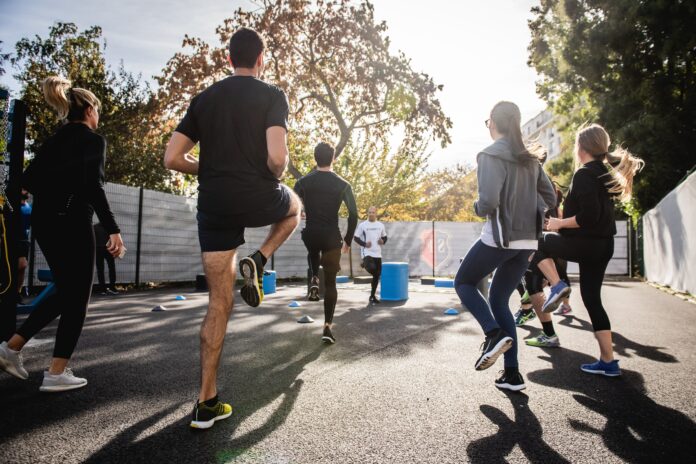Research published today in the British Journal of Sports Medicine conducted by Discovery Health and Vitality shows that regular physical activity may boost the effectiveness of the COVID-19 jab. The study also reveals that the level of protection against serious infection improves in tandem with the amount of exercise done.
The Discovery Health and Vitality study was conducted in collaboration with Witwatersrand Sport and Health Research Group (WiSH), the Sisonke Programme and the South African Medical Research Council (SAMRC).
There’s convincing evidence that vaccination and regular physical activity independently help to ward off the consequences of severe COVID-19 infection, reducing the incidence of hospital admission, intensive care and assisted ventilation or death. This new research shows the combined effect is even greater – by linking the improved effectiveness of the Johnson & Johnson (J&J) single-dose COVID-19 vaccine with increased physical activity levels.
Discovery Health’s Chief Healthcare Analytics Actuary, Shirley Collie says: “We set out to test the hypothesis that regular physical activity enhances the immune-boosting effect of COVID-19 vaccines, reducing severe outcomes in vaccinated people (measured by hospital admission).”
This South African control study drew on anonymised medical records, and recordable activity tracker data for healthcare workers vaccinated through the Sisonke trial with the J&J vaccine, who were clients of both a Discovery Health Administered Scheme and a Vitality wellness programme.
Importantly, this is the first study to use recent, directly measured physical activity data to demonstrate an association between increased levels of regular physical activity and the effectiveness of vaccination against adverse COVID-19 outcomes.
Regular physical activity boosts the protective effect of vaccination
Those who were fully vaccinated and who clocked up high weekly levels of physical activity were nearly three times less likely to be admitted to hospital than those who were vaccinated but in the low physical activity category.
In other words, “the risk of hospital admission among fully vaccinated healthcare workers was reduced by 60% in the group who engaged in low levels of physical activity, and by 72% and 86% in the medium and high physical activity groups, respectively,” explains Collie.
“The findings suggest a possible dose–response, where high levels of physical activity were associated with higher vaccine effectiveness,” explain the researchers.
Collie adds: “Ours is not the first study of this nature. Past studies that have measured antibody responses to determine vaccine efficacy (looking at vaccines like the flu vaccine) suggest that regular physical activity of moderate intensity enhances the protective effect of vaccines, especially in those with immune dysfunction including the elderly.”
Professor Jon Patricios, from Wits Sport and Health says: “This substantiates the WHO recommendations for regular physical activity—namely, that 150–300 mins of moderate to high intensity physical activity per week has meaningful health benefits in preventing severe disease, in this context against a communicable viral infection.”
How can we explain the findings?
Professor Glenda Gray, President of the South African Medical Research Council, cautions that more research is needed to understand why exactly exercise enhances vaccination’s effects.
“For now, we suggest this may be a combination of enhanced antibody levels, improved T-cell* immunosurveillance and psychosocial factors,” Gray mentions.
Many studies have shown that engaging in regular exercise increases one’s immunity overall and lowers the risk of community-acquired infections, and so could strengthen the effect of being vaccinated.
Dr Mosima Mabunda, Head of Wellness at Discovery Vitality adds: “As the body of evidence grows, there is simply no denying the copious benefits of physical activity. Exercise improves our overall health, contributes to our quality of life, extends our lifespan and determines how healthy we’ll be in those later years.” Vitality released a study just last week connecting moderate increases in exercise to helping prevent depression amongst women.
More and more evidence for the positive effects of physical activity
The damaging medical consequences, and destructive economic and social ripple effects of the COVID-19 pandemic have been well described. Individuals’ physical and mental health, behaviour and social security have been impacted.
As of October 2022, over 6.55 million people have died from COVID-19 disease worldwide. Many more (around 620 million people) have contracted the disease, some experiencing serious illness.
“In summary, our study shows that physical activity appears to enhance the protective effects of single-dose J&J COVID-19 vaccination against severe COVID-19,” explains Shirley Collie. “We therefore strongly recommend that physical activity should be encouraged through greater public health messaging, as a key method which reduces individual and population-wide risk of serious COVID-19 illness.”

